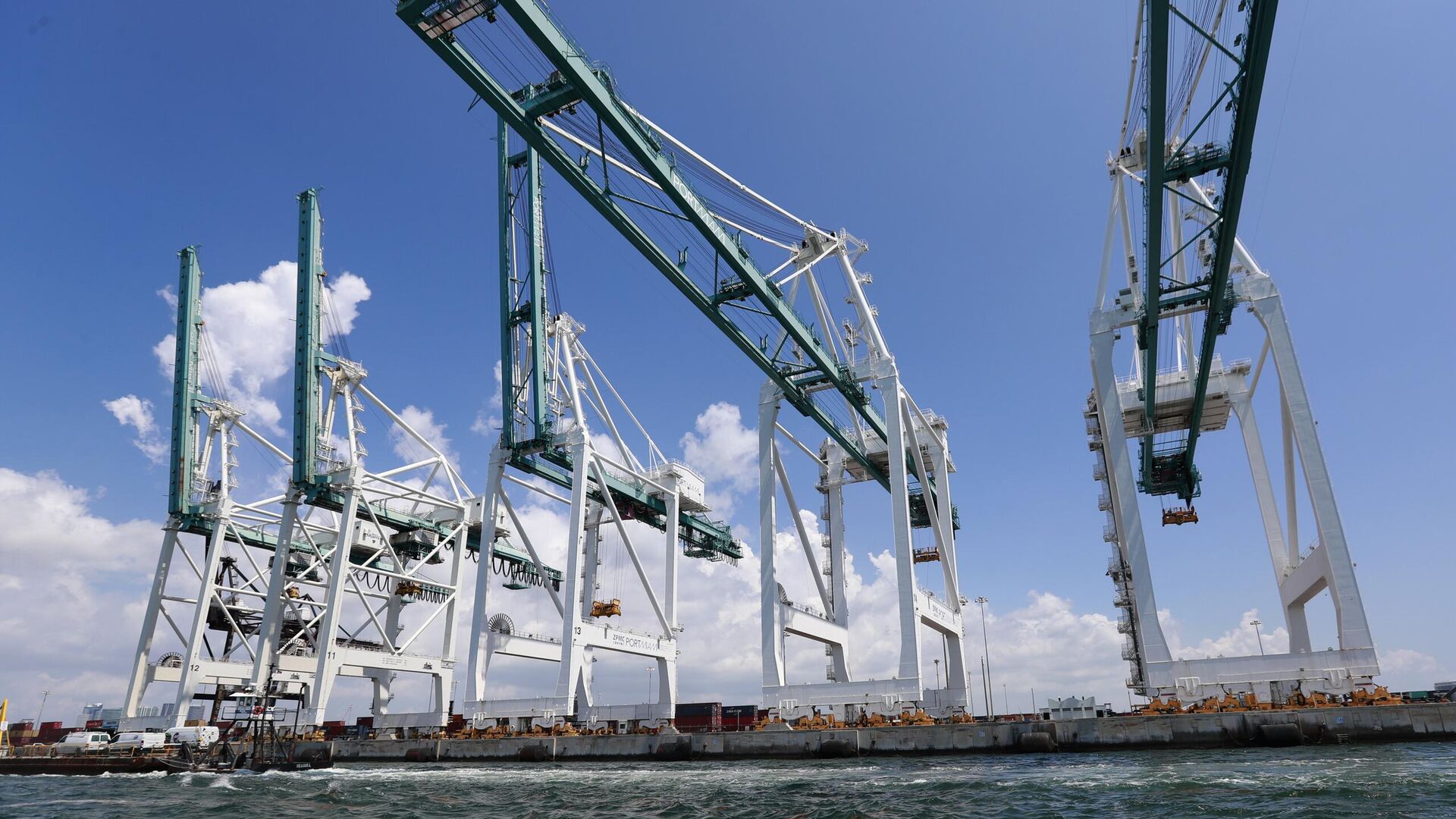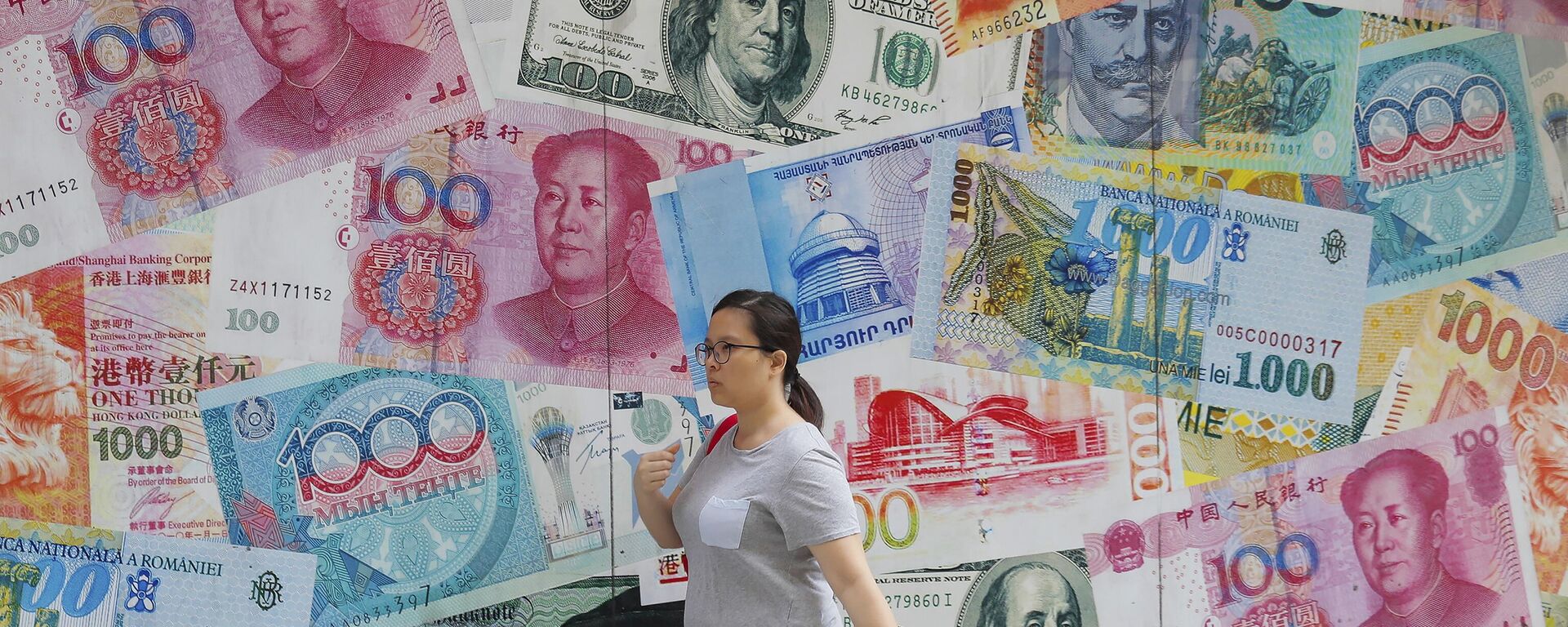https://sputnikglobe.com/20230727/us-economy-grew-by-24-in-second-quarter-but-labor-market-slowing-1112197310.html
US Economy Grew by 2.4% in Second Quarter, But Labor Market Slowing
US Economy Grew by 2.4% in Second Quarter, But Labor Market Slowing
Sputnik International
The US economy beat many economists’ estimates for growth in the second quarter of 2023, but the steam that has kept it above water may soon be running out.
2023-07-27T18:48+0000
2023-07-27T18:48+0000
2023-07-27T18:48+0000
americas
federal reserve
us department of commerce
economic growth
inflation
https://cdn1.img.sputnikglobe.com/img/07e7/03/06/1108088353_0:105:2559:1544_1920x0_80_0_0_4a4fda1dc4df4544221053b0f5ae9a13.jpg
According to new data released by the Bureau of Economic Analysis, an agency of the US Department of Commerce, the US gross domestic product (GDP) increased by 2.4% between April and June.The data shows an increase in consumer spending, nonresidential fixed investment, private inventory investment, and spending by local, state and federal governments. However, exports and imports both decreased, as well as residential fixed investment. There were also modest increases in personal income and personal savings.Still, according to analysts, the BEA data showed signs of a slowdown coming, as the growth in personal income and disposable income were much smaller than they had been. Indeed, many economic forecasts put third quarter growth below a 1% increase.The news comes as the Federal Reserve, the nation’s central bank, modestly increased interest rates on Wednesday, bringing the effective federal funds rate to a 22-year high. Investors had feared for weeks that another rate hike was coming, since while inflation had decreased from its highs last summer, it has remained well above the 2% target set by the Fed, and strong employment data released earlier this month meant the Fed had increased wiggle room to raise interest rates more. "There will be a point, due to rising business costs and higher consumer finance costs, that the economy will slow," Joe Brusuelas, chief economist for RSM US, told US media. "But right now, the argument for a ‘soft landing’ is clearly resonating in a way it hasn’t over the past two years."
https://sputnikglobe.com/20230727/will-chinese-yuan-overtake-us-dollar-as-worlds-dominant-trade-currency-1112178031.html
americas
Sputnik International
feedback@sputniknews.com
+74956456601
MIA „Rossiya Segodnya“
2023
News
en_EN
Sputnik International
feedback@sputniknews.com
+74956456601
MIA „Rossiya Segodnya“
Sputnik International
feedback@sputniknews.com
+74956456601
MIA „Rossiya Segodnya“
economic growth; second quarter; gdp growth; bureau of economic analysis; inflation
economic growth; second quarter; gdp growth; bureau of economic analysis; inflation
US Economy Grew by 2.4% in Second Quarter, But Labor Market Slowing
The US economy beat many economists' estimates for growth in the second quarter of 2023, but the steam that has kept it above water may soon be running out.
According to
new data released by the Bureau of Economic Analysis, an agency of the US Department of Commerce, the US gross domestic product (GDP) increased by 2.4% between April and June.
The data shows an increase in consumer spending, nonresidential fixed investment, private inventory investment, and spending by local, state and federal governments. However, exports and imports both decreased, as well as residential fixed investment. There were also modest increases in personal income and personal savings.
Economists' estimates for Q2 growth varied wildly from 1.1% by The Conference Board to 2.6% by the Federal Reserve, although the actual 2.4% growth rate beat most expectations.
Still, according to analysts, the BEA data showed signs of a slowdown coming, as the growth in personal income and disposable income were much smaller than they had been. Indeed, many economic forecasts put third quarter growth below a 1% increase.
The news comes as the Federal Reserve, the nation’s central bank,
modestly increased interest rates on Wednesday, bringing the effective federal funds rate to a 22-year high. Investors had feared for weeks that another rate hike was coming, since while inflation had decreased from its highs last summer, it has remained well above the 2% target set by the Fed, and
strong employment data released earlier this month meant the Fed had increased wiggle room to raise interest rates more.
Raising interest rates strongly correlates to an increase in unemployment, which investors have feared is bound to trigger a recession.
"There will be a point, due to rising business costs and higher consumer finance costs, that the economy will slow," Joe Brusuelas, chief economist for RSM US, told US media. "But right now, the argument for a ‘soft landing’ is clearly resonating in a way it hasn’t over the past two years."



